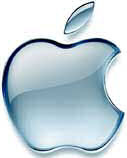 Apple Computer today released a statement in which it accuses RealNetworks of hacking [SIC] the iPod copy protection when creating the Harmony Technology
Apple Computer today released a statement in which it accuses RealNetworks of hacking [SIC] the iPod copy protection when creating the Harmony Technology
Apparently Apple confused the terms "hacker" and "cracker". It was painfully obvious when Harmony was announced that Apple would draw out the DMCA card.
The Digital Millennium Copyright Act seems to be abused time after time without actually being used to it's intended purpose. The DMCA was designed to protect copyrights, but instead it is being used by RIAA, MPAA, and now Apple to maximize their profits.
In their counter statement Real said that "Consumers, and not Apple, should be the ones choosing what music goes on their iPod." Additionally they try to capture the essence of DMCA. "The DMCA is not designed to prevent the creation of new methods of locking content and explicitly allows the creation of interoperable software."
Even though Real obviously have their own interests in mind, Harmony does give consumers more choice, and the right to fair use of their purchased products -- in this case DRM crippled digital music and iPod players. The consumer rights aren't too highly valued, though, when they are put up against the DMCA.
321 Studios is probably the best known pro-consumer-rights companies. They tried to convince the legislators that consumers should have the right to fair use of their products, but failed. The endless and ridiculous lawsuits have meant that 400 people have already lost their jobs.
321 Studios CEO Robert Moore also sees DMCA as a tool that is, and will be constantly abused. "The DMCA is actually going to be used to trounce competition, stifle innovation, monopolize capitalistic industry and, in the end, the consumer will suffer the consequences," Moore commented.
It would be quite naive to think that what we are seeing now is the DMCA (or EUCD, or any other law limiting consumer rights) at its ugliest. This is just the tip of the iceberg. As the copyright laws get more and more strict, the companies come up with more ways to gain control over the complete media chain -- from production to your living rooms.
A great example of what's around the corner is the HDMI (High-Definition Multimedia Interface) standard, which is already being adopted in high-end products. While the idea of a single, digital bus is great, HDMI contains features that should send shivers up your spine. HDMI includes the High-bandwidth Digital Content Protection (HDCP) specification.
HDCP can definitely be titled the mother of all content protection systems. It gives the device manufacturers and content providers complete control over the devices used for displaying content. If an unlicensed device, such as a third party display, is detected in the HDMI bus, a licensed player, for example, can shut down the bus entirely, or degrade image quality.
Slowly but surely analog interfaces will be replaced by digital ones. Once all (or at least most) connections are digital, the entertainment industry has accomplished what Microsoft only dreams of -- a complete monopoly over the market.
Sources:
Apple statement(PR Newswire)
Real press release
HDMI.org
Digital Content Protection, LLC (HDCP)













